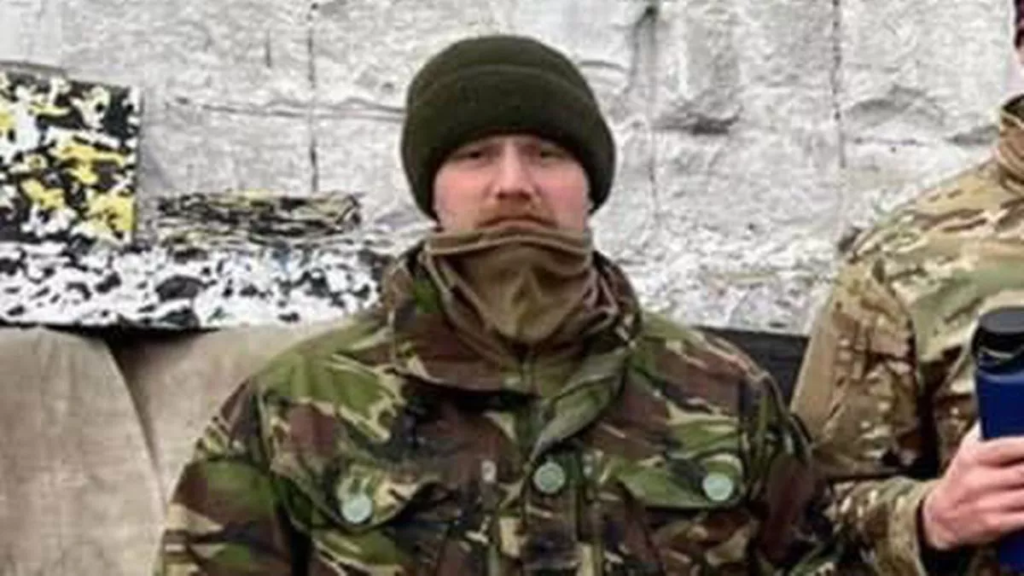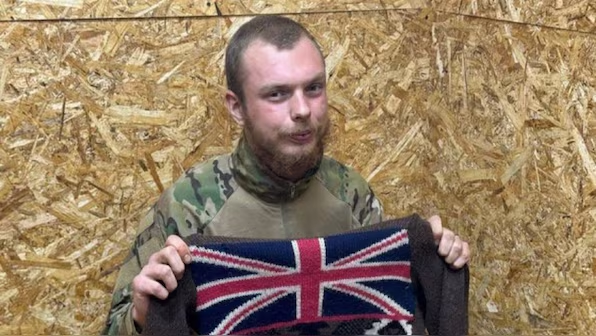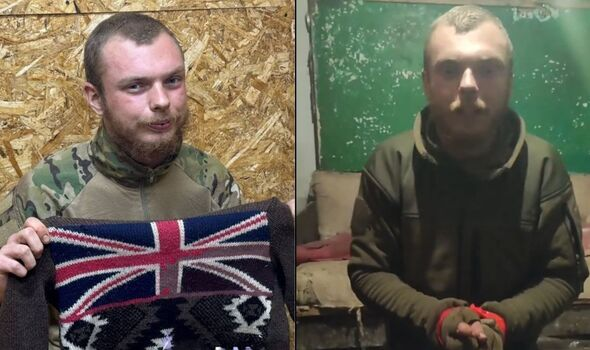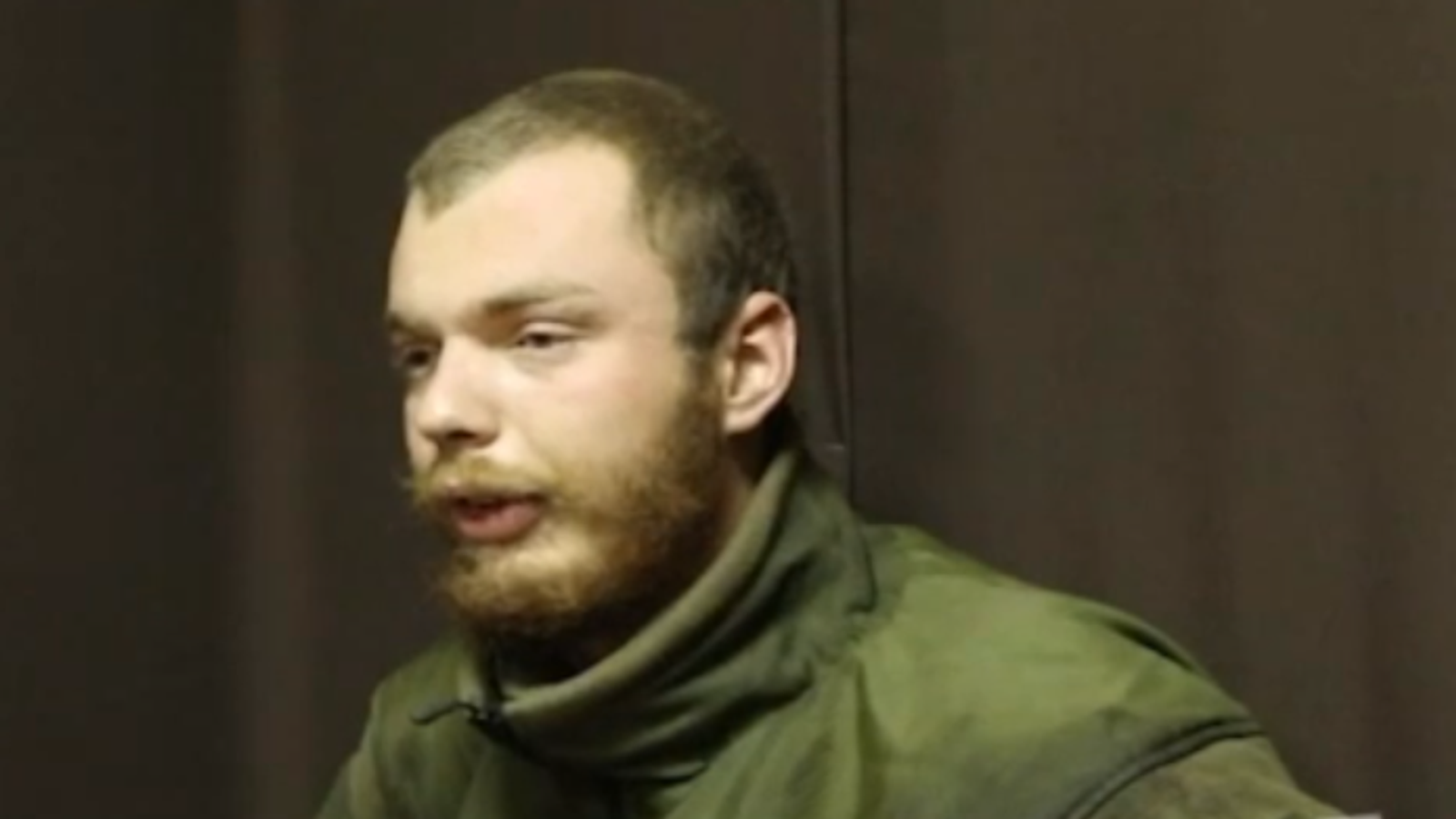A British man, James Scott Rhys Anderson, has reportedly been captured by Russian forces while fighting for Ukraine in the contested Kursk region.
This development adds a personal dimension to the broader conflict and raises important questions about the role of foreign volunteers, the risks they face, and the implications for international diplomacy.
Anderson’s capture and the emotional response from his family have sparked widespread concern and highlight the human cost of the ongoing war.
The Journey and Motivation of James Anderson
James Anderson, a 22-year-old former British Army soldier, joined Ukraine’s International Legion—a unit composed of foreign volunteers—after leaving the British Army in 2023. His story is emblematic of the many foreign fighters who have been drawn to Ukraine’s cause since the Russian invasion began in February 2022.
For Anderson, the decision to join the fight was driven by a sense of duty and a belief that he was doing the right thing. His father, Scott Anderson, revealed that he had pleaded with his son not to go, fearing the dangers that awaited him.
Anderson’s journey to Ukraine was both simple and poignant. He flew from Luton Airport to Krakow in Poland and then traveled by bus to the Ukrainian border.
This route has become a common pathway for foreign volunteers seeking to join the conflict. Many, like Anderson, are motivated by a mix of personal convictions, a sense of adventure, and the belief that they can make a difference in a struggle that has global implications.
Read : Home of The British Royal Family – Windsor Castle Raided by Two Thieves
However, Anderson’s capture underscores the harsh reality faced by these volunteers. Fighting in a foreign conflict is fraught with risks, and the prospect of being captured by an enemy force is a constant threat.
Read : Larry the Cat: Chief Mouser to the Cabinet Office at 10 Downing Street Since 2011
In Anderson’s case, the video released by Russian media shows him looking frightened and worried, a stark reminder of the dangers faced by foreign fighters. His father’s fears about torture and mistreatment are not unfounded; reports of harsh treatment of prisoners by Russian forces have been well-documented.
The Battle for Kursk and Its Strategic Importance
The capture of James Anderson took place amid fierce fighting in the Kursk region, an area of significant strategic importance. In early August, Ukraine launched a surprise offensive into this territory, advancing up to 18 miles and capturing around 1,000 square kilometers of Russian-held land. This bold move was part of Ukraine’s broader strategy to regain control of occupied territories and push back against Russian forces.
The offensive in Kursk marked a significant escalation in the conflict, as it brought the fighting closer to Russian territory and demonstrated Ukraine’s ability to conduct complex operations.

However, the Russian response has been swift and forceful. Reports indicate that Moscow has deployed some 50,000 troops to the region and has begun retaking territory. The battle for Kursk is far from over, and the situation remains fluid, with both sides suffering heavy casualties.
For foreign fighters like Anderson, the battle in Kursk represents a high-stakes gamble. The region’s strategic importance means that it is heavily contested, and the fighting is intense.
Volunteers who join the conflict often find themselves in the midst of brutal, high-intensity warfare, far removed from the more conventional operations they may have experienced in their home countries. The risks are enormous, and the capture of foreign fighters adds a layer of complexity to an already volatile situation.
Implications for Diplomacy and International Relations
The capture of a British citizen by Russian forces has significant diplomatic implications. The UK Foreign Office has confirmed that it is supporting Anderson’s family, but the situation presents a delicate challenge.
Negotiating the release of foreign prisoners is fraught with difficulties, especially in the context of an ongoing war. There is also the question of how the Russian government will use Anderson’s capture for propaganda purposes.
Russian state media has already labeled Anderson a “mercenary,” a term that carries negative connotations and suggests that he is not entitled to the protections afforded to regular soldiers under international law.

This narrative is likely intended to undermine Western support for Ukraine and to portray foreign volunteers as illegitimate combatants. The treatment of Anderson and other foreign prisoners will be closely watched by human rights organizations and the international community.
For the UK government, the situation is a test of its commitment to supporting its citizens abroad. The emotional plea from Anderson’s father adds a personal dimension to the diplomatic challenge.
His fear that his son will be tortured reflects the broader concerns about the treatment of prisoners in Russian custody. The UK and its allies will need to navigate this situation carefully, balancing the need to protect their citizens with the broader strategic considerations of the conflict.
The capture of foreign fighters also raises questions about the role of international volunteers in the conflict. While many view them as heroes fighting for a just cause, their presence can complicate the situation and create diplomatic headaches for their home countries.

The case of James Anderson is a reminder that the decision to join a foreign conflict is not one to be taken lightly. It carries significant risks, both for the individuals involved and for their countries of origin.
The capture of James Scott Rhys Anderson by Russian forces is a poignant reminder of the human cost of the war in Ukraine. It highlights the risks faced by foreign volunteers and the complex diplomatic challenges that arise when citizens of one country become involved in the conflicts of another. Anderson’s story is a personal tragedy, but it also reflects the broader realities of a war that continues to have far-reaching implications.
As the conflict in Kursk and other regions continues, the international community will be watching closely to see how the situation unfolds.
The treatment of Anderson and other foreign prisoners will be a key test of Russia’s adherence to international norms, and the response from the UK and its allies will be a measure of their commitment to protecting their citizens and supporting Ukraine.

